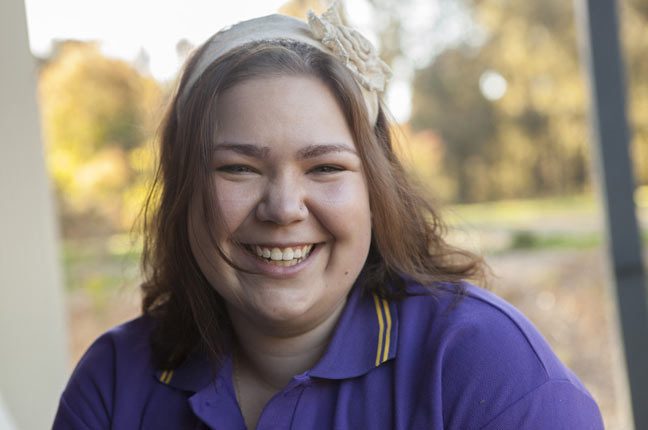
Lorna Schmider-Woodcock is an Aboriginal and Torres Strait Islander woman from Brisbane. She currently lives in Canberra where she is an Indigenous cadet through the Australian Public Service Commission program at the National Museum of Australia.
On December 10th and 11th, 2012, I attended the Indigenous Knowledge is Eternal: Knowledge and Culture Sharing in Indigenous Communities cultural meeting in Sydney. Supported by Oxfam and the National Museum of Australia I was able to learn about the legal, practical, and cultural protocol of protecting Indigenous knowledge, including imagery, as well as engage in discussions about law sharing and teaching by Uncle Philip Obah and Uncle Victor Jose.
I arrived a day early on the 9th to do a bit of exploring in Sydney and catch up over yum cha with my friends. Unlike Canberra, which was having a balmy weekend, I arrived in Sydney to gusts of wind and rainclouds – not what I was expecting. I nearly got blown over walking along the streets! A quick visit to the beach was ruled out straight away; rather a quick visit to the shops to get a jumper was in order.
Day one of the meeting I arrived to a room full of people that my parents had worked with and had to introduce myself to all of the Aunties and Uncles as “such and such’s daughter”. In the end there were only nine of us from around Australia: lawmen, lawyers, members of Indigenous boards, rangers, and me. This was excellent as I was able to plug the great things that ChangeCoursers are doing for their communities and the great job Oxfam is doing to support us, as well as plug and network for my own project. There was an agenda but once we got yarning the topics jumped around the place and we ended up not covering some of them.
Wide ranging discussion
The discussions ranged from native title and cultural access to the land as well as to the water and seas, through to image usage. We touched on legal government concerns etc., Indigenous cultural knowledge of country and that the “Indigenous people of the region didn’t have access to look after country so country was running wild”, and respectful use of images of people and country. This last topic was directed by Wayne Quillam and was interesting for me, as I want to document my project using images and film. This made me more aware that I need to get electronic photo consent forms to do this, which also saves paper and space.
Day two was cut short, as we had ploughed through the topics the previous day. Uncle Phil and Uncle Victor Jose discussed culture-sharing between, and within, Indigenous groups. They discussed that because some Indigenous communities had lost their law, a lot of the in-fighting and tall poppy syndrome was the resulting impact. Their solution was for communities on the east coast to go west and learn from those communities that still have their law.
Throughout the two days, outside of the room when we were having lunch, we got into discussing the power of words and how they can change a perception of a project. Uncle Brian Butler talked about how by changing lateral violence into “Lateral Love” you create a more positive image and more people are able to access it. This is further iterated by changing “men’s group” or “women’s group” into “Brotherhood” and “Sisterhood”. That way you change the focus on individuals as men or women into how the group can support their brothers or sisters together. An interesting thought for when naming my project.
My LEV experience was fun and interesting, adding food for thought as well as things I hadn’t thought about in my plan. I was able to take away valuable knowledge and network with members of communities who have paved their own way for their projects. A huge thank you to Peter for suggesting the course and Bec for organising travel, registration and allowance at such short notice.
Find out more about Oxfam’s ChangeCourse initiative developing Aboriginal and Torres Strait Islander youth leadership.